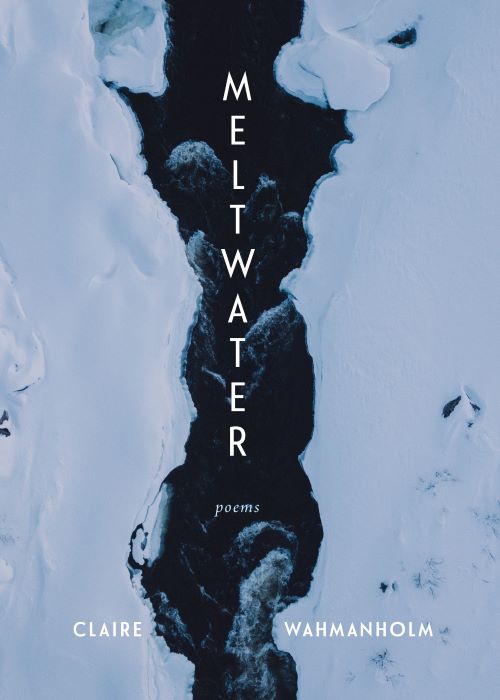Lately, my dreams have been more deadthan usual. They have always been a little dead,but only around the edges. Or the deadnesshas been a dimple on the dreamscape:a little sweet, a little fermented, a little vegetal.Appalachian yellow asphodel, the dream says,and its sunny stars shine, exuberant and deadand loudly so. The bluebuck lowers its blue faceinto them. The cryptic treehunter carriesa dwarf mantis orangely into a tree. Becausethe dream is so dead, there is no differencebetween the land and the sea. The eelgrass limpetcould easily be mistaken for a mountain pebble,the forkshell for a shelf fungus. Because the dreamis so dead, there is no difference between mossand my breath. The golden toad clambers acrossthe cloud forest of my face. I have followedthe speckled trail of Himalayan quail feathersand now I am on a beach that is also a mountainthat is also, somehow, the scrubby backyardof my childhood home. The IndefatigableGalápagos mouse is here, which seems unlikelyas anything. I hadn’t thought to see the Japanese sea lionagain, or for the first time. I’ve heard that most people diewithin one day of having a dream like this, in whichI am packing my suitcase full of Kaua‘i ‘ō‘ō mating calls.In the forested canyons of being dead, they canfinally be answered. Most people die within a dayof waking from this dream, but if life on Earthwere a day, we have only been awake for one minuteand fifteen seconds of it. Long enough to erasethe large sloth lemur and the Mariana mallardand eighty-three percent of everything else.On balance, it’s unnatural to be living. A statisticalimpossibility. Extinct means extinguish means quench,but what mouth is so thirsty for our deadness?What could hold the Navassa curly-tailed lizardas it curls its tail in alarm? What could holdten million species? The Old English bulldog,for example, or the aquarium full of phantom shinersgleaming like the northern lights. It is alreadyflamboyantly night. The space between the starsis startlesome as the eyes of the Queen of Sheba’s gazelle.I recognize the Rodrigues night heron by its unwaryamble. I too had thought myself unassailable,buoyant with time. O night soft as sea mink,everything’s going to be fine. O Tasmanian tiger,not even one hundred years gone. What kind of spongeis this dream, that it can soak up so much time?What happens when it’s squeezed? My knees have becomeupland for the upland moa. My hips are mottledby the Vegas Valley leopard frog. I don’t knowhow an entire forest has sprouted inside my lungs,but I have been cooperative, and the leavesof the woolly-stalked begonia have been so gentle.My cells rumble beneath the plod of the Xenoceratops,which honestly seems too big to have vanished.My heart is itchy. I would like to place it in a cooler body.I would like to place it in a den of Yunnan lake newtsand let their red spines outshine my blood,though everything is already shining from the edgesin and closing the doors behind it. There has beensome confusion. I meant for the dream to end,but not while I was inside it. I have mistakenthe dream’s deadness for my own skin, my breathingfor the shaky song of the Zulu ambush katydid.
Deathbed Dream with Extinction List
Feature Date
- May 1, 2023
Series
- What Sparks Poetry
Selected By
Share This Poem
Print This Poem
“Deathbed Dream with Extinction List” from MELTWATER: by Claire Wahmanholm.
Published by Milkweed Editions on March 14, 2023.
Copyright © 2023 by Claire Wahmanholm.
All rights reserved.
Reproduced by Poetry Daily with permission.

Claire Wahmanholm is the author of Meltwater (Milkweed Editions 2023), Redmouth (Tinderbox Editions 2019), and Wilder (Tinderbox Editions 2018). Her work has most recently appeared in, or is forthcoming from, Cream City Review, TriQuarterly, Sierra, Ninth Letter, Blackbird, Washington Square Review, Copper Nickel, and Beloit Poetry Journal. She was a 2020-2021 McKnight Writing Fellow, and her poem “Glacier” won the 2022 Montreal International Poetry Contest. She lives in the Twin Cities.
“Meltwater feels necessary and urgent. And comforting… Art that surveys the atmospheric wreckage of the Anthropocene might be the only way to soothe the existential dread that accompanies this fast-warming planet’s forecast”
—Racket
“Despite the inherent sorrow that accompanies our necropastoral landscape, this collection nevertheless remains tender and beautiful as it ruminates on ongoing loss.”
—Marissa Ahmadkhan, West Review
"Meltwater guides readers through a deep-welling grief for a world in upheaval while offering an antidote to some of that grief. While the collection is heavy with mourning, it is also subtly and deftly uplifting, prompting us to remember the simple things that we “suffer the empty universe for.”
—Zoe Binder, zyzzyva
“Claire Wahmanholm is a poet of devastating inevitability, of all the living that comes after the apocalypse, and Meltwater is ‘a vast, organic machine / running like static behind everything.’”
—Allison Flory, Arkansas International
Poetry Daily Depends on You
With your support, we make reading the best contemporary poetry a treasured daily experience. Consider a contribution today.




